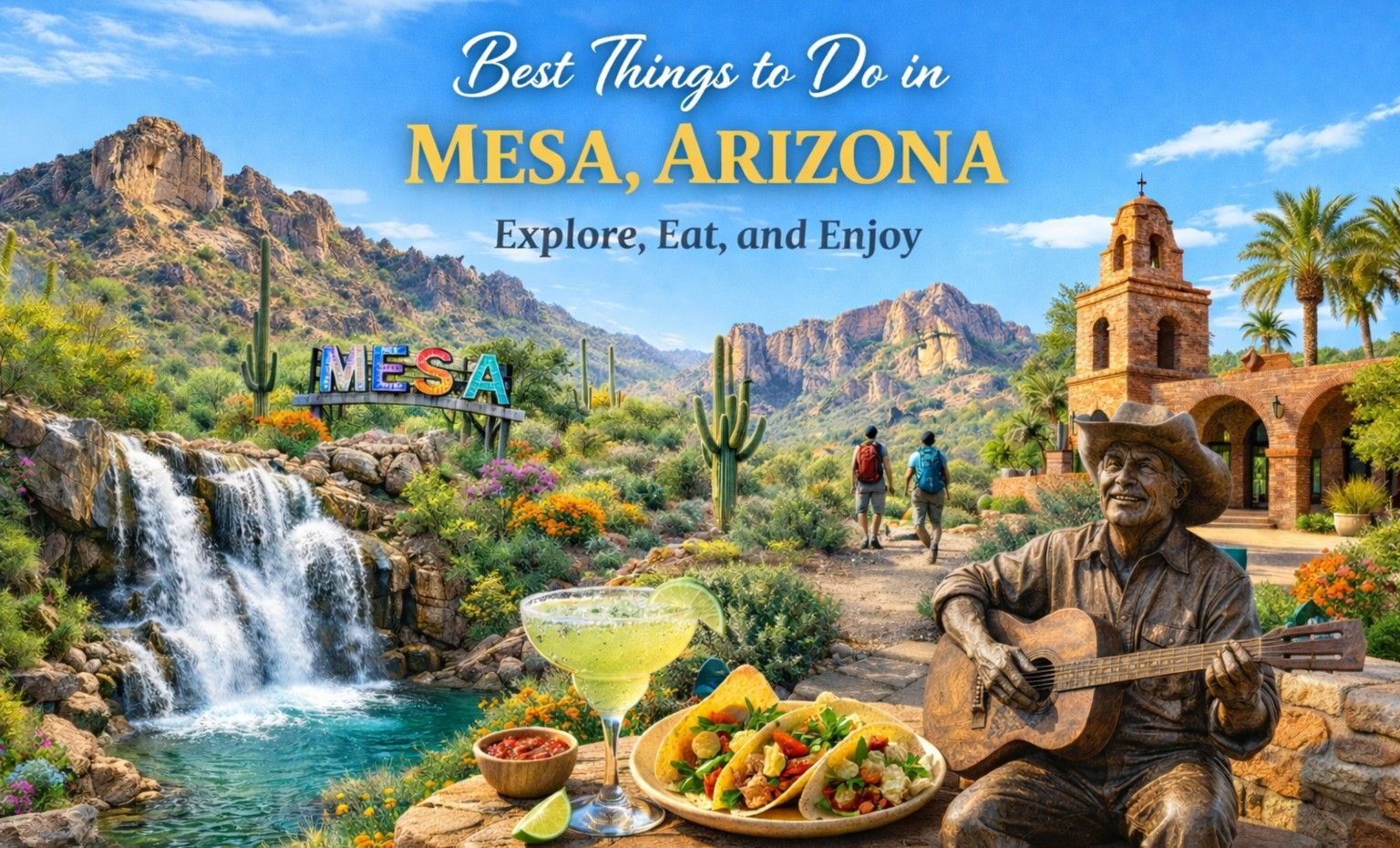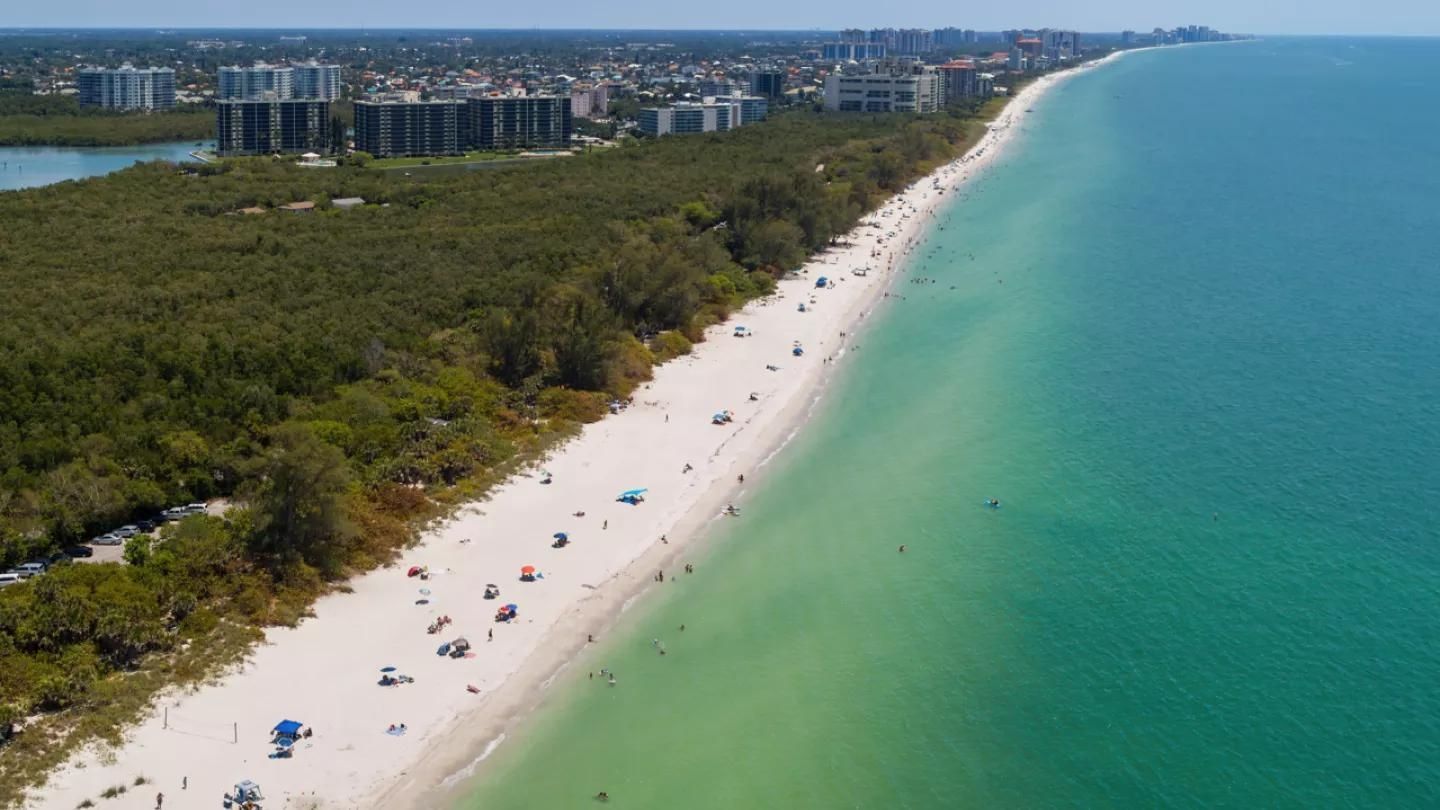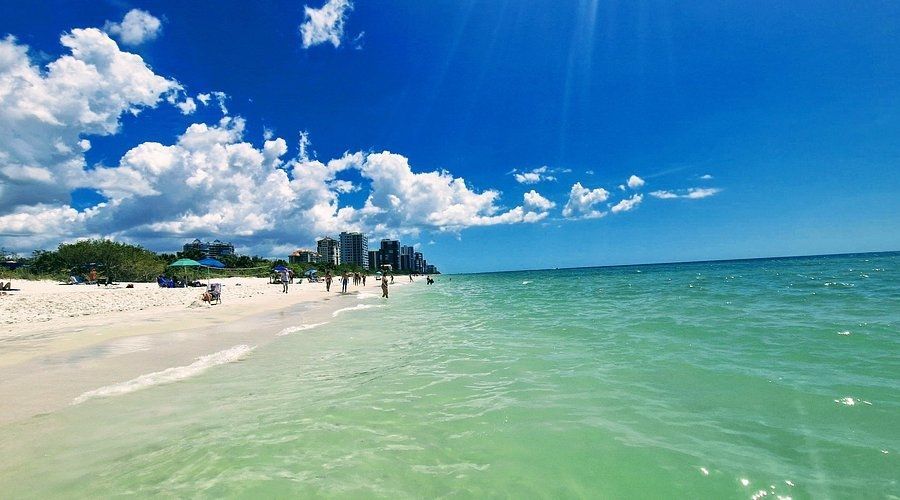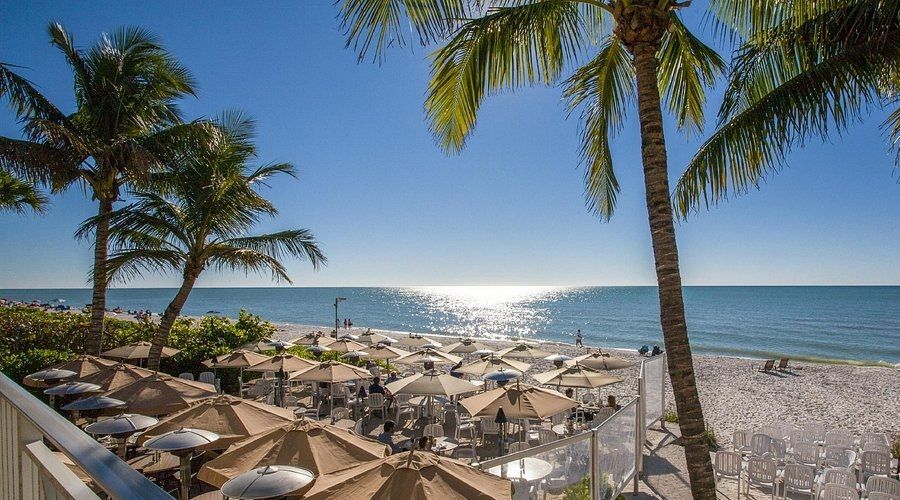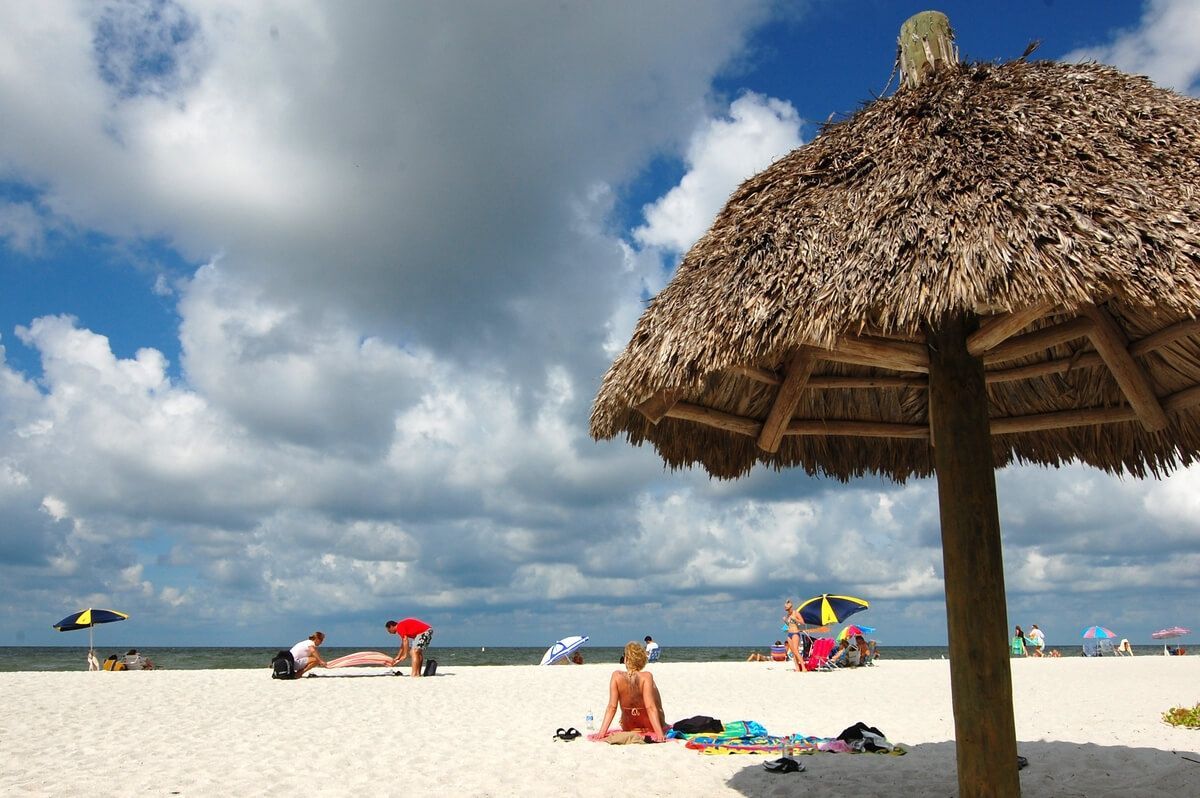New Mexico Airbnb Laws: Short-Term Rental Regulations in the Land of Enchantment
By: Elliott Caldwell | Created Apr 15, 2025
Overview of Short-Term Rental Regulations for Airbnb Hosts
New Mexico, known as the Land of Enchantment, has seen a rise in short-term rentals (STRs) offered through platforms like Airbnb and VRBO. While there is no single statewide law explicitly dedicated to short-term rentals, hosts must navigate a combination of state tax requirements and local city or county ordinances.
In general, New Mexico allows local governments to regulate STRs, so the rules can vary significantly by city. State law primarily affects taxes—requiring hosts to pay gross receipts tax (GRT) on rental income and lodgers’ taxes—whereas cities like Santa Fe, Albuquerque, Taos, and Las Cruces impose their own permitting and operational rules. These tourism-driven destinations are also among the best places to buy an Airbnb, especially for investors looking to capitalize on demand and regulatory clarity.
This guide provides a comprehensive look at New Mexico’s short-term rental framework, including state obligations and detailed city-by-city regulations.
What is Considered a Short-Term Rental in New Mexico?
In New Mexico, a short-term rental typically refers to any dwelling rented for 30 consecutive days or less. This definition is used at both the state and local levels to distinguish STRs from long-term rentals.
For example, Santa Fe’s ordinance defines an STR as “any dwelling unit rented for less than 30 calendar days” and Albuquerque’s rules similarly cover rentals of 29 days or fewer.
These include whole houses, apartments, condos, casitas, or rooms offered to transient guests. Rentals longer than 30 days are usually treated as long-term tenancies and are not subject to the same STR taxes or regulations.
Categories of Rentals
New Mexico does not have separate state categories like “vacation rental” or “transient lodging” – instead, STRs are generally treated as a type of lodging business.
Many local jurisdictions categorize STRs by zoning or property type. For instance, Santa Fe distinguishes between Residential STR Permits (for STRs in residential zones) and Non-Residential STR Registrations (for STRs in commercial or non-residential zones).
The key distinction is often whether the rental is in a residential neighborhood (which may have caps and stricter rules) or in a commercial/tourist area.
Overall, if you rent out a home or part of a home to guests for short stays in New Mexico, you are operating a short-term rental and must comply with the relevant laws.
State-Level STR Requirements
At the state level, New Mexico’s focus is on taxation and general business compliance for short-term rentals. There is no state-issued short-term rental license, but hosts are subject to state taxes and business regulations:
Gross Receipts Tax (GRT)
New Mexico imposes a gross receipts tax on nearly all business income, including rental revenue from STRs. The state GRT base rate is around 5.0% (4.875% in 2024) and, after adding local increments, the total tax ranges roughly from 5% up to about 8.9% depending on the location. For example, the combined state and local GRT is about 7.9% in Albuquerque and 8.2% in Santa Fe.
As a host, you must register for a New Mexico Combined Reporting System (CRS) number to report and pay GRT on your rental income.
Note:
Marketplaces like Airbnb are now required to collect and remit GRT on bookings in New Mexico as “marketplace facilitators.” Airbnb charges guests the appropriate GRT during checkout. However, hosts must still file GRT returns to the state and can deduct any taxes the platform paid on their behalf.
Lodgers’ Tax (Local Occupancy Tax)
New Mexico does not impose a statewide occupancy tax, but state law empowers cities and counties to levy a local Lodgers’ Tax on short-term rentalsavalara.com. In 2019, New Mexico amended its Lodgers’ Tax Act to require short-term rentals to collect local lodgers’ taxes regardless of property size (previously, small B&Bs were exempt).
Lodgers’ tax is typically 5% of the gross rental charges (not counting GRT) in many New Mexico cities. For instance, Albuquerque has a 5% lodgers’ tax, Santa Fe 5% (plus an additional 2% Convention Center Fee), Taos 5%, and Las Cruces 5%
These taxes are used to fund local tourism and must be remitted to the city or county. Many platforms collect lodgers’ taxes on the host’s behalf in New Mexico. Airbnb, for example, automatically collects required lodgers’ taxes in several jurisdictions (e.g. Airbnb adds 5% + 1% for Albuquerque, and 7% for Santa Fe bookings). Hosts are ultimately responsible for ensuring these taxes are paid and reported, whether through the platform or directly to the
local government.
- State Business Registration: While New Mexico doesn’t require a special STR license, if you operate as a business entity (LLC, corporation) you must register with the New Mexico Secretary of State. Even as an individual, you’ll need to register for state and local tax IDs. In practice, cities like Albuquerque and Santa Fe require you to obtain a State Tax ID (CRS number) before or alongside applying for the city STR permit. This CRS registration is done through the New Mexico Taxation and Revenue Department and covers GRT reporting.
- General Health and Safety Codes: New Mexico has statewide building and fire codes (based on international codes) that all properties must meet. There isn’t a separate state inspection for STRs, but hosts should ensure their rental meets basic safety requirements (working smoke alarms, carbon monoxide detectors, fire extinguishers, proper egress, etc.). Some local laws explicitly require proof of safety compliance (see city sections below).
Important: Apart from taxes, New Mexico leaves most STR regulations (permitting, zoning, occupancy limits, etc.) to local authorities. The state’s role is primarily to collect taxes and enforce general laws (e.g. anti-discrimination, health/safety) that apply to all businesses. Thus, to operate legally you must comply with both state tax laws and the specific ordinances of the city or county where your rental is located.
Steps to Start a Short-Term Rental Business
Starting an Airbnb or short-term rental business in New Mexico involves several steps to ensure you are compliant from day one. Here’s a step-by-step guide:
1 - Research Local Regulations: Begin by checking the STR laws in the city or county of your property. Requirements can differ widely – for example, Santa Fe has a cap on permits and strict rules, whereas some rural areas might be less restrictive. Verify if short-term rentals are allowed in your property’s zoning and note any permit application windows or caps.
2 - Register Your Business and Taxes:
Obtain a New Mexico Combined Reporting System (CRS) tax ID from the Taxation & Revenue Departmentbnbcalc.com. This will allow you to report Gross Receipts Tax. If you plan to form an LLC or corporation for your rental, register that with the state as well. You should also apply for any local business registration/license required. (For instance, most cities mandate a general business license in addition to any STR permit.)
3 - Prepare the Property (Safety & Zoning): Ensure your property meets
local zoning requirements and safety codes. This may include:
- Life-Safety Installations: Equip the rental with smoke detectors in bedrooms, carbon monoxide detectors, fire extinguishers, and clearly marked exits. Some cities provide a checklist; e.g., Santa Fe’s Fire Department requires specific fire
safety measures for STRs.
- Parking and Access: Provide the required off-street parking spaces if local law mandates it (Santa Fe requires 1 space for a 1-bedroom rental, 2 spaces for 2+ bedrooms). Make sure address numbers are visible for emergency services.
- Property Standards: The unit should be in good repair, comply with building codes, and if an inspection is required (as in some cities), schedule that after applying.
4 - Obtain Local Permits/Registration: Apply for your city’s
Short-Term Rental permit or registration. Each major city has its own process:
- Complete the application form (often online).
- Submit required documents such as proof of ownership, a floor plan/site plan, proof of insurance, your CRS tax ID, and any local affidavits (e.g., an affidavit to comply with city ordinances).
- Pay the application fee. (Fees range from around
$50–$120 initially, depending on the city – see city-specific sections for details.)
- Some cities require notifying neighbors of your intent to operate an STR (Santa Fe requires you to mail notices to neighbors within 200 feet when your permit is approved).
5 - Pass Required Inspections: If the city or county mandates inspections, schedule them promptly.
Fire/safety inspections are common – an inspector may check your smoke alarms, extinguisher, electrical panels, and general safety compliance. For example, Santa Fe’s process requires passing a fire inspection before a permit is granted, and Roswell (another NM city) requires both building and fire inspections for STR licensing. Ensure you address any issues they flag.
6 - Obtain Insurance Coverage: Acquire appropriate
short-term rental insurance. Standard homeowners insurance is often not sufficient for STR operations. Some cities (like Albuquerque and Santa Fe) explicitly require proof of liability insurance as part of the permit application. A policy tailored to vacation rentals will protect you from liability and property damage claims related to guest stays.
7 - Pay Applicable Taxes and Fees: Once you start hosting, be diligent in collecting and remitting taxes. Register with your city or county to pay lodgers’ taxes (if not collected by the platform). Most jurisdictions require monthly lodgers’ tax reports. For instance, Las Cruces and Albuquerque require hosts to file monthly lodgers tax returns by the 25th of each month. Similarly, you should file state GRT returns (typically due monthly or quarterly) for your rental income.
Tip: Maintain a separate bank account for your rental business to easily track income and set aside money for tax payments.
8 - Comply with Operational Rules: Once you’re up and running, follow all operational standards set by local law. This may include posting a “Good Neighbor Policy” in the rental (Albuquerque requires a posted notice with noise, parking, and trash rules), adhering to occupancy limits, keeping a local contact available, and displaying your permit number on all listings and advertisements. We’ll detail these requirements per city in the next section.
By following these steps, you’ll establish a compliant short-term rental business in New Mexico. Remember that requirements can change, so staying in touch with local STR offices or subscribing to city newsletters can help you keep up-to-date. Next, we break down the specific short-term rental regulations in major New Mexico cities, which is crucial since local rules dictate most of the day-to-day obligations for hosts.
Local Regulations in Major Cities
New Mexico’s most popular cities for short-term rentals each have their own set of laws. Below is a breakdown of STR regulations in Santa Fe, Albuquerque, Taos, and Las Cruces, including definitions, permitting, taxes, and operational rules in each location. Always consult the latest city ordinance or official guidance, as these regulations are periodically updated.
Santa Fe
Santa Fe is one of the most regulated STR markets in New Mexico, reflecting its status as a top tourist destination with historic neighborhoods. The City of Santa Fe enforces a comprehensive short-term rental ordinance (Santa Fe City Code §14-6.2(A)(5) and (6)) with key provisions as follows:
Permit Requirement and Cap
All short-term rentals within Santa Fe city must have a Residential Short-Term Rental Permit (for properties in residential zones) or a Non-Residential STR Registration (for properties in commercial/mixed-use zones). There is a citywide cap of 1,000 permits for STRs in residential zoning districts. Each natural person (individual) may hold at most one residential STR permit in Santa Fe.
Note: Business entities cannot get additional permits by holding multiple properties – the permit must be under a person’s name.
Application Process and Fees
New STR permits are applied for via the city’s online portal. Applicants must submit proof of ownership, a site plan showing required parking, a floor plan, their state CRS tax ID, and proof of insurance.
There is a one-time
application fee of $100, and upon approval an annual permit fee of $290 plus a $35 business license fee (total $325 per year) is due. All STR permits expire each year on December 31 and must be renewed by March 15 (with fees paid by April 15) to avoid late penalties.
Zoning and Density Restrictions
STRs are allowed in most residential zones with a permit, but Santa Fe imposes spacing limits to prevent neighborhood over-concentration. No two residentially-zoned STR properties can be within 50 feet of each other’s property boundary (this is the “proximity rule”).
In multi-unit buildings with 4 or more units (like condos or apartments), a maximum of 25% of units may be used as STRs (and no more than 12 STR permits in one building).
In buildings with 3 or fewer units, the 50-foot spacing rule applies between separate structures. These limits do
not apply in non-residential zones (e.g. downtown commercial), where there is no cap on registrations besides a limit of 12 STR units per multi-unit building.
Local Contact and Notifications
Each STR must designate a local operator/contact who is available 24/7 and can be on-site within one hour to address emergencies or complaints.
When a permit is approved, the host is required to mail notification letters to all neighbors within 200 feet, providing a 24-hour contact number for complaints. The permit number must also be posted on all advertisements and listings for the rental.
Occupancy and Rental Limits
Santa Fe limits the occupancy and frequency of short-term rentals:
- Overnight occupancy is capped at
2 adult guests per bedroom (twice the number of bedrooms). For example, a 2-bedroom house can have 4 adults max overnight. (Children under 12 are typically not counted against the limit.)
- Rental frequency: A residential STR may be rented out
once per seven-day period. In other words, you cannot split the same week into multiple shorter rentals to different groups (to reduce turnover impacts on neighborhoods). However, Santa Fe suspends the one-per-week rule during the winter holiday period from November 15 to January 15, when more frequent rentals are allowed.
- Gatherings: Santa Fe’s ordinance limits gatherings at an STR to
twice the number of permitted guests. This is to prevent large parties. So a rental that sleeps 4 could have at most 8 people present for a daytime gathering.
Parking
Each STR must provide off-street parking: at least 1 parking space for a studio or 1-bedroom rental, and 2 spaces for a rental with 2 or more bedrooms. This is to ensure guest vehicles don’t overcrowd street parking. The site plan submitted with the application should show these spaces.
Taxes
Santa Fe hosts must pay both state Gross Receipts Tax (GRT) on rental income and the City’s Lodgers’ Tax. Santa Fe’s lodgers’ tax rate is 7% (comprised of a 5% occupancy tax + 2% convention center fee) on rentals less than 30 days.
The host or platform needs to remit this to the city monthly. Notably, Airbnb automatically collects 7% lodgers’ tax for bookings within Santa Fe city. State GRT in Santa Fe is approximately 8.1875% (rate as of 2023), which Airbnb also collects from guests.
Hosts should ensure they have a CRS ID and file the state and city tax reports as required.
Enforcement and Penalties
Operating an STR in Santa Fe without a permit, or violating the STR ordinance, can lead to significant penalties. Fines can be up to $500 per day for non-compliance. The city actively enforces rules through a contract with Host Compliance (Granicus) to identify illegal listings.
They also require hosts to keep detailed records for 3 years of each rental (dates, revenue, taxes paid) and may audit these. Complaints from neighbors (e.g. noise, parking) are handled by the city’s Code Enforcement and the STR office, and can jeopardize your permit if not addressed.
In summary, Santa Fe’s strict regulations mean hosts need to be very diligent. You need a permit (one per person, limited citywide), an annual fee, neighbor notification, a local emergency contact, compliance with spacing and one-booking-per-week rules, and you must collect 7% lodgers’ tax + ~8% GRT on all bookings. In return, once compliant, Santa Fe welcomes responsible STRs as part of its hospitality offerings. Just be prepared for thorough oversight.
Albuquerque
New Mexico’s largest city, Albuquerque, implemented its short-term rental ordinance in 2021 to address community concerns and to legalize STRs within city limits. The Albuquerque STR ordinance (O-20-30) requires all short-term rental properties to be permitted and establishes operational standards. Here are the main points for Albuquerque:
Permit and Business Registration: Operating a short-term rental in Albuquerque requires obtaining a City Short-Term Rental Permit for each property. Before applying, hosts must have a City of Albuquerque business registration (business license) and a New Mexico CRS tax ID number. In practice, you can apply for the STR permit and business license concurrently, but final permit approval will hinge on securing the state tax ID. Each STR property needs its own permit – if you have multiple rental units, you must permit each one.
Application Requirements
Albuquerque’s permit application is submitted online (through the city’s
LodgingRevs/MuniRevs portal) Key requirements include:
- A detailed floor plan of the unit
- Proof that you will comply with city ordinances, by signing an acknowledgment.
- A signed “Good Neighbor Agreement” – this is a document the host must post inside the rental to inform guests of local rules (noise restrictions, trash disposal, parking regulations, etc.).
- Proof of short-term rental insurance coverage for the property.
- Payment of the permit fee.
Fees
The STR permit application fee in Albuquerque is $120 for the first year, and the permit must be renewed annually for a fee of $90 in subsequent years.
If you let the permit lapse, you would need to reapply and pay the initial fee again. The typical processing time for a new permit is about 5–7 business days once all documentation is submitted.
Operational Rules
- Occupancy Limit: Overnight occupancy is limited to 2 adults (over age 12) per bedroom, plus 2 additional adults overall. For example, a 2-bedroom house could host 2×2 + 2 = 6 adults max. (Children 12 and under are not counted in this cap.) This rule is to prevent overcrowding of homes.
- Gatherings Limit: The city also limits gatherings or events at an STR to at most double the overnight occupancy,
and in any case no more than 20 people*. Furthermore, any gatherings that exceed the overnight occupancy must disperse by 10:00 PM nightly. This means if your rental sleeps 6, up to 12 people could be there during the day, but those extra 6 (beyond the overnight guests) must leave by 10 PM. Large parties are effectively disallowed.
- Parking and Neighborhood: The Good Neighbor Agreement you post will remind guests to obey noise ordinances, proper trash disposal, and parking rules. While Albuquerque’s law doesn’t specify a required number of parking spaces per STR, general zoning rules about not blocking sidewalks or driveways apply. Ensuring your property has sufficient parking space for your maximum guests is a best practice.
- Local Contact: Albuquerque partnered with a 24/7 hotline through LodgingRevs – if neighbors have complaints, they can call a city STR hotline (505-465-7710) which will then reach out to the host or send code enforcement The host should be responsive to any issues, though unlike Santa Fe, Albuquerque’s law does not mandate a local manager within 1 hour – it relies on the hotline and good neighbor policy for enforcement.
Taxes:
In Albuquerque, hosts must pay:
- City Lodgers’ Tax (5%) and a
Hospitality Fee (1%) on all rentals up to 29 nights. These total a 6% local occupancy tax. Airbnb automatically collects both the 5% lodgers’ tax and the 1% hospitality fee from guests on Albuquerque bookings. If you use other platforms or direct bookings, you must collect these taxes from guests and remit them.
- State Gross Receipts Tax (~7.875% in ABQ): This is also collected by Airbnb on its bookings. Hosts should report the income and taxes via their CRS filings. Albuquerque’s combined state/local GRT rate is about 7.875%.
- Monthly Reporting: Even if a platform remits the taxes, Albuquerque requires hosts to file a monthly report. By the 25th of each month, hosts must submit a lodgers’ tax/hospitality fee report for the previous month. If Airbnb or similar already paid the city, you still fill in the form (entering $0 due, with reference to what was paid). This ensures the city has a record of each property’s activity. Failing to report can be a violation even if the taxes were paid.
Enforcement
Operating without a permit in Albuquerque can lead to fines (the exact fine structure isn’t explicitly listed in the ordinance, but any violation of city code can result in penalties). The city actively monitors listings through Granicus (similar to Santa Fe) and has the aforementioned complaint hotline for neighbors.
If a complaint is lodged, code enforcement can check if your unit is registered. Unregistered STRs may be issued notices of violation. Additionally, repeated nuisance complaints (noise, trash, overcrowding) can result in your permit being revoked.
Important: The city’s STR website notes that Airbnb and VRBO will deactivate listings that are not in compliance if notified – Airbnb is required to remove a listing within 5 days if the city reports an invalid permit number, which likely applies in Albuquerque too due to cooperation agreements.
In summary, Albuquerque’s STR laws require you to get a permit per property, maintain insurance, follow occupancy limits (2/bedroom+2), and be a good neighbor by controlling noise and parking.
Albuquerque embraces STRs as long as hosts play by the rules – the permitting process is straightforward and there’s no citywide cap on STR permits at this time. Just remember to renew annually and keep up with your monthly tax filings.
Taos
Taos, a small town known for its art colony and ski valley nearby, has implemented STR regulations to balance tourism with local character. The Town of Taos (not to be confused with Taos County) passed Ordinance 22-12 in 2022 establishing rules for short-term rentals within town limits. Key points for Taos are:
Permit Requirement and Annual Cap
Taos requires all STR operators to obtain a Short-Term Rental Permit from the town.
Importantly, Taos has capped the number of STR permits at 120 citywide. The town opened an online permit system on April 1, 2022, and accepts applications each year starting April 1 until all available permits are issued on a first-come, first-served basis.
If you are interested in operating an STR in Taos, it’s crucial to apply as early as possible during the open application period due to this cap. Permits expire annually on September 30, and there is a renewal window until November 30 for existing permit holders.
Zoning Restrictions
Taos has designated where STRs can and cannot operate:
- Prohibited Areas: Short-term rentals are not allowed in the Historic Districts, the Historic Overlay Zone, the Hotel Overlay Zone, or the Central Business District (CBD) of Taos. These are areas the town likely preserved for long-term residents, historic authenticity, or hotel use. If a property in those zones had a permit prior to the new ordinance and was in compliance, it may continue as a non-conforming use and renew its permit (grandfathered in), but no new STRs in those zones are permitted.
- Allowed Zones: STRs are permitted in many residential and commercial zones such as RA-20, RA-10, RA-6, RA (various residential/agricultural zones), R-1 through R-14 (residential zones), and C-1, C-2 (commercial zones). Some of these zones require a conditional use permit in addition to the STR permit. For example, if the zoning code calls short-term rental a conditional use in a particular residential zone, you must get approval through the planning commission’s conditional use process
before obtaining the STR permit.
Application Process
The permit application is available through an online portal (Host Compliance). Applicants should ensure their property meets the requirements before applying, because only complete applications are considered.
Required steps/documents include
- proof of ownership,
- a site plan,
- parking plan,
- a life-safety self-inspection or report (see below),
- proof of a local contact, etc.
The permit fee is not explicitly stated on the town’s site, but expect an application fee and possibly annual renewal fee (the bnbcalc guide notes the fee amount is not specified publicly). Additionally, Taos charges a standard $35 annual business registration fee for any business, which may apply to STRs.
Safety and Operational Requirements
Taos places emphasis on guest safety and host responsibility:
- Hosts must provide a
“rental packet” in the unit with important information. This packet should include contact information for the host and a local responsible party, safety information (e.g. evacuation routes, emergency phone numbers), and relevant town rules (noise ordinance, water restrictions if any, etc.).
- Every STR must have functional
safety equipment:
operable smoke detectors, carbon monoxide detectors, fire extinguishers, and any other safety features deemed necessary by the Fire Marshal. The presence of these is mandatory and likely verified via an inspection or certification. It’s wise to have the local Fire Department inspect the unit or at least review the requirements with you.
- You must designate a
local responsible party for the STR (someone who can respond to issues when you are not available).
- Occupancy Limits: The Taos ordinance text available doesn’t list a specific number, but generally expects that occupancy should be reasonable for the size of the unit (often 2 per bedroom as a guideline, similar to other jurisdictions). Check the permit conditions for any explicit cap.
- Good Neighbor Compliance: STRs must comply with all normal codes: no excessive noise, proper trash management, no illegal parking, etc. Since Taos is a small community, enforcement can be neighbor-driven.
Taxes
The Town of Taos imposes a 5% Lodgers’ Tax on short-term rental stays of less than 30 nights. STR operators are responsible for collecting this tax from guests. Important: As of a note on the town website, online payments for Lodgers’ Tax are no longer available, so hosts must arrange payment directly (by phone or in person with the town’s Customer Service).
Additionally, rentals in Taos are subject to Gross Receipts Tax (the combined state/county/city GRT for Taos is roughly 8.5–9% as of 2024). Hosts need to pay GRT on rental income to the state and any applicable local portion (via their CRS filings).
It’s up to each host to ensure all these taxes are collected and paid – currently, Airbnb does not list Taos town as one of the locations where it automatically remits Lodgers’ Tax (Airbnb does collect lodging tax for unincorporated Taos County, but that doesn’t cover inside the town). So Taos hosts should either charge the 5% as part of their pricing or collect it separately and then remit it to the town monthly.
Renewal and Enforcement
All Taos STR permits expire on September 30 each year. Hosts must renew by November 30 to keep operating. If a host fails to renew, their permit could be given to someone on the waiting list (remember, only 120 permits exist). Operating without a permit in Taos can result in penalties, though the ordinance doesn’t specify fine amounts publicly. Given general municipal code, fines could be a few hundred dollars per violation. The town works with Host Compliance to monitor listings, so unpermitted rentals are likely to be identified. Always display your Town of Taos permit number in any listing as required; that helps the town confirm your compliance.
In summary, Taos has a strict cap and specific zone restrictions. To legally rent in Taos, ensure you’re in an allowed area, apply early for the limited permits, outfit your property with all required safety features, and be prepared to pay taxes directly. Taos is enforcing these rules to protect its historic and cultural zones while still allowing some STRs in appropriate areas.
Las Cruces
Las Cruces, the second-largest city in New Mexico (located in Doña Ana County), has implemented requirements focused mainly on registration and tax compliance for short-term rentals.
The City of Las Cruces updated its Lodgers’ Tax ordinance effective January 1, 2020 to include short-term rentals as taxable lodging establishments. Here are the highlights for Las Cruces:
Property Registration
Anyone operating a short-term rental within the City of Las Cruces is required to register the property with the city.
This is a simple registration rather than a restrictive permit process – currently there’s no cap on the number of STRs in Las Cruces and no special zoning prohibitions mentioned in city materials.
The registration ensures the city knows about your rental and can track tax payments.
- The
initial registration fee is $50 per property. This is a one-time permit fee to register. (If you begin renting a new property, you’d pay $50 for that property’s registration as well.)
- Registration can be done through the city’s online portal for STRs You’ll need to provide property information (address, owner info, etc.) and likely your NM CRS number. After registering, you’ll be able to use the online system to file taxes.
- There is mention in local news that after the initial $50 permit, there’s a
$35 annual registration renewal in Doña Ana County. It’s wise to check with the city if an annual fee applies to keep the STR registration active, as the city’s website emphasizes the $50 initial fee but not the renewal. (Doña Ana County, which covers areas outside city limits, definitely requires $35 yearly – more on county below.)
Lodgers’ Tax Obligations
Las Cruces enforces a 5% Lodgers’ Tax on the gross rent for
stays less than 30 days. As a registered STR operator, you are responsible for collecting this 5% tax from your guests and remitting it to the city. Key points:
- The city has an online payment system where you can file and pay lodgers’ tax each month. Taxes are due by the 25th of each month for the previous month’s rentals (e.g., January taxes
due by Feb 25).
- If you pay late, Las Cruces charges a penalty: 10% of the owed tax or $100 (whichever is greater), plus 1% interest on the unpaid balance per month. They also state the city can audit STR properties to ensure compliance.
- Airbnb’s role: The city advises that if you use a platform like Airbnb or Vrbo,
you must verify whether that platform is collecting the tax for you. Not all platforms automatically collect Las Cruces tax. Airbnb
does not currently list Las Cruces city in its automatic collection (as of latest info, Airbnb only covers the unincorporated county lodgers’ tax in that area). This means Las Cruces hosts should not assume the platform is handling it – you should either include the tax in your price or add it as a manual fee, then pay the city. The city explicitly says
“contact the service provider directly to clarify tax collection processes as not all sites collect and/or report the required taxes.”.
State Taxes
In addition to the 5% lodgers’ tax, Las Cruces hosts owe Gross Receipts Tax on rental income. Las Cruces’s GRT rate is around 8.3125% (this includes state and local increments).
Ensure you report that via your CRS filings. (If Airbnb collects GRT as required by state law, that portion may be handled, but confirm if Airbnb is remitting just state portion or city portion too – by default, Airbnb should collect the full combined GRT since 2021 legislation.)
Compliance with City Codes
Las Cruces doesn’t impose extra operational rules specific to STRs (like occupancy limits or parking beyond normal code), but
hosts must follow all general city codes regarding health, safety, and neighborhood impact This means:
- Noise: Adhere to noise ordinances (quiet hours at night, no excessive noise disturbing neighbors).
- Trash: Proper trash disposal on scheduled pickup days, no accumulation of waste.
- Parking: Guests should not violate any parking rules (e.g., blocking fire hydrants or sidewalks). If your area has permit parking or limited on-street parking, that should be communicated to guests.
- Building and Fire Codes: The property must be safe and habitable. The city’s code enforcement officers and Fire Marshal have the authority to
inspect STR properties given a 24-hour notice. That means if there’s a concern or random compliance check, you must allow city officials to inspect within 24 hours of notice. As such, ensure your rental has all the safety basics (smoke alarms, exits, etc.) and is not a modified structure that violates building codes.
Enforcement
Because Las Cruces focuses on registration and taxation, enforcement centers on those aspects. If a property is found operating unregistered or not paying taxes, the city can issue violations.
Also, nuisance issues can be handled under general law (for instance, if neighbors call police or code enforcement for loud parties, you could face fines or even have your business registration revoked for repeated violations). Always keep your registration current and respond to any city communications.
Doña Ana County
It’s worth noting that outside the Las Cruces city limits, Doña Ana County has its own ordinance (No. 316-2020, effective Jan 2021) requiring STR owners in the county to get a permit and pay fees. The county’s rules include a one-time $50 permit and $35 annual registration (similar to the city), and add requirements for liability insurance, parking standards, noise and occupancy limits in the unincorporated areas. If your property is in a place like Mesilla or other parts of Doña Ana County, be sure to follow the county’s STR law. Within Las Cruces city, just follow the city’s registration and lodgers tax rules as outlined.
Summary for Las Cruces: Register your STR with the city ($50 fee), collect 5% lodgers’ tax from guests and remit it monthly, and comply with standard city rules on safety and nuisance. There is no complex permit process or quota in Las Cruces, making it relatively straightforward to operate compared to Santa Fe or Taos. Just don’t forget that tax, as the city is serious about collecting it to promote local tourism.
Short-Term Rental Taxes in New Mexico (State & Local)
Taxes are a crucial part of short-term rental compliance in New Mexico. Both the state and local governments levy taxes on STR stays, and hosts need to understand which taxes apply to them:
Gross Receipts Tax (State Sales Tax Equivalent)
New Mexico’s Gross Receipts Tax (GRT) is applied to the revenue from short-term rentals just like it is to other services. If you host an Airbnb, the money you charge for rent and cleaning fees is generally subject to GRT. The GRT rate varies by location because it includes the state rate plus any local option increments. As of 2024, the statewide base GRT is 4.875%, and combined rates around the state range from about 5% up to 8.9%. For example:
- In Santa Fe, the combined GRT is roughly 8.2%.
- In
Albuquerque, it’s about 7.875%.
In the Taos area, it’s around 8.5 -- 9% (Taos town was ~8.75% and increased to over 9% in 2024 due to a new tax). - In
Las Cruces, it’s about 8.3125% (this can change with local increments).
As a host, you must report your vacation rental income to the Taxation & Revenue Department and pay GRT.
Marketplace Facilitator Law: Since July 1, 2019, New Mexico requires marketplaces like Airbnb and Vrbo to collect and remit GRT on sales they facilitate over a certain threshold. Airbnb is complying – it charges the guest GRT on your behalf (in the “Occupancy Taxes” line) for bookings in New Mexico.
This simplifies things, but
you still need a CRS ID and must file your GRT returns. On your state tax return, you can deduct the portion of gross receipts that the marketplace already paid tax on, so you’re not double-taxed. If you have direct bookings (outside a platform), you’re responsible for charging the guest and paying the tax. Essentially, either Airbnb handles it or you do, but in all cases the state expects to receive GRT for every short-term rental stay.
Lodgers’ Tax (Local Transient Occupancy Tax)
Lodgers’ Tax is a local tax on short-term lodgings (sometimes called occupancy tax, bed tax, or transient lodging tax). New Mexico municipalities and counties can impose up to 5% (and some an extra 1–2% for special tourism zones) on rents for stays under 30 days. Unlike GRT, this tax is in addition to state tax and is used by local governments to fund tourism promotion or related infrastructure. Here’s how it works in our covered cities:
- Santa Fe: 7% total lodgers’ tax (5% occupancy tax + 2% convention center fee). Applies to rent + cleaning fees for <30-day stays. Collected by the City of Santa Fe. (Airbnb collects this 7% automatically on its platform.)
- Albuquerque: 5% lodgers’ tax + 1% hospitality fee = 6% total, on rent + cleaning for <30 days. Collected by City of Albuquerque. (Airbnb collects both for you, and you must still file monthly reports to the City.)
- Taos (Town): 5% lodgers’ tax on <30 days. Collected by the Town of Taos (likely via monthly reporting). (Airbnb likely
does not automatically collect this for Taos town as of now – host must handle it).
- Las Cruces: 5% lodgers’ tax on <30 days. Collected by City of Las Cruces (monthly reporting by 25th). (Airbnb does not list Las Cruces city for automatic collection; host is responsible to collect/remit).
- Other Areas: Most other NM cities (Roswell, Farmington, etc.) also have ~5% lodgers’ tax. Notably,
Santa Fe County (unincorporated) has 5% and
Taos County (unincorporated) has 5%. If your property is outside city limits, you pay the county. Airbnb does collect for
unincorporated Taos County but only if the listing has more than a certain number of bedrooms (Taos County had a weird rule historically). Always check the Airbnb help center or local tax office for your specific location.
Payment
Lodgers’ taxes are usually reported and paid to the city or county monthly (some smaller towns might allow quarterly). Many locales have an online portal. Penalties for late payment can include fines, interest, and even revocation of your registration. Keep records of all your bookings and what taxes were collected.
Income Taxes
Don’t forget that rental income is subject to federal and state income tax as well. As a business expense, you can typically deduct the lodging taxes and GRT you pay, but you’ll need to report the net income on your income tax returns. While not a law “specific to STR,” it’s part of the financial picture.
In summary, for each reservation under 30 days in New Mexico, expect to pay roughly 13-15% in taxes (state+local combined).
For instance, a stay in Santa Fe will have ~15.1875% total tax (7% lodgers + ~8.1875% GRT), and Albuquerque around 13.875% (6% lodgers/hospitality + 7.875% GRT). Airbnb and similar platforms usually show these as “Occupancy Taxes and Fees” on the checkout page for guests.
As a host, your job is to ensure these taxes make it to the proper authorities.
Tip: Separate these taxes from your rental rate in your accounting, and never pocket them – they are trust funds owed to the government. If you rely on a platform to collect, verify via your host statements that it’s being done correctly. And when in doubt, call your city’s finance department; many have guides for STR owners on tax compliance.
Best Practices for Compliance and Success
Successfully running a short-term rental in New Mexico means not only following the law but also maintaining a good reputation with neighbors and guests. Here are some best practices to ensure compliance and boost your business success:
- Stay Informed and Up-to-Date: Regulations can change, so regularly check for updates from your city or county. For example, Santa Fe made major changes in 2020, and other cities tweak rules as needed. Join local host associations or forums if available (Santa Fe has a STR Alliance, etc.) to get news. The STR landscape is evolving, and staying adaptable is key to long-term success..
- Always Get the Proper Permits/Registrations: It might be tempting to operate “under the radar,” but the risks (hefty fines, closure of your listing, legal action) far outweigh the effort of doing it right. Begin the permitting process early, especially in places with caps like Taos or Santa Fe. Keep digital and hard copies of your permits and license certificates. Mark your calendar for renewal deadlines (each city has different dates).
- Meticulously Track and Remit Taxes: Set up a system for tracking your STR income and the taxes due. Many hosts set aside the tax portion from each payout into a separate account so they aren’t caught short at filing time. File required reports on time (both city lodgers’ tax reports and state CRS returns). If using Airbnb’s tax collection, reconcile what they paid with what you owe. Being late or missing payments can incur costly penalties and draw
unwanted scrutiny. When in doubt, consult a CPA familiar with NM taxes.
- Maintain Sufficient Insurance: Do not rely solely on Airbnb’s Host Guarantee or similar programs – they have limitations. Obtain commercial
liability insurance or a special STR rider on your homeowner’s policy. Some insurers offer “home-share” or landlord policies that cover short-term rental use. Having the right insurance not only is required by cities like Albuquerque, but it protects your investment and provides peace of mind.
- Ensure Guest and Property Safety: Compliance with fire and building codes isn’t just about avoiding fines – it’s about protecting lives. Regularly test smoke and CO detectors and document it. Keep a fire extinguisher on each floor and in the kitchen. If your property has a fireplace or furnace, have them inspected annually. Clearly post emergency exit routes and emergency phone numbers. Also, consider the
security of guests: good locks, adequate exterior lighting, and perhaps a first aid kit on site.
- Be a Good Neighbor: The success of STRs in a community hinges on hosts minimizing disruptions. Always enforce your house rules regarding quiet hours (often 10 PM – 7 AM in residential areas), parking only in designated spots, and total occupancy. Posting the local noise ordinance and trash pickup schedule on the fridge can remind guests. Provide a local contact number (either yours or a manager’s) to neighbors and on a sign at the property if required, so issues can be addressed promptly. Respond to neighbor complaints with understanding and action – sometimes a friendly conversation and a gift card can smooth relations if there was an inconvenience.
- Keep Organized Records: Save all documentation related to your STR: permit applications, approvals, licenses, tax filings, guest logs, and financial records. Santa Fe actually mandates keeping three years of detailed records, and it’s wise for all hosts to do similarly. Not only will this help if you face an audit or neighbor challenge, but it also helps you track your business performance.
- Optimize Your Listing Within Legal Bounds: Include your license or permit number on all listings as required (this is
mandatory in Santa Fe and Albuquerque). In your listing description, you can also preemptively mention “This rental is licensed/operated in compliance with local laws (Permit #XYZ)” which can reassure guests and neighbors that you’re following the rules. However,
do not advertise beyond what your permit allows (e.g., don’t list 4 bedrooms if your permit is for 3, or advertise an “event venue” if gatherings are limited).
- Plan for Business Success: Treat your STR as a professional endeavor. That means setting competitive pricing (accounting for taxes in your rates), maintaining high cleanliness and hospitality standards for good reviews, and possibly investing in improvements that both enhance guest experience and ensure compliance (e.g., a keypad lock that logs entries can provide security and a record; noise monitoring devices can alert you to potential ordinance violations without eavesdropping on guests). Happy guests lead to better occupancy and revenue, while compliant operations lead to longevity.
- Consult Professionals When Needed:
If you’re unsure about legal intricacies, consider consulting a real estate attorney or CPA knowledgeable in New Mexico STR law. For scaling your operations or handling tasks, you might hire a property manager – just ensure they also adhere to all regulations on your behalf. Companies like Home Team Luxury Rentals (the sponsor of this guide) specialize in
managing high-end STRs in compliance with local laws, which can be an asset for owners who prefer a hands-off approach.
By following these best practices, you not only avoid legal pitfalls but also position your short-term rental business for positive relationships and robust earnings. New Mexico’s blend of rich culture, natural beauty, and events means there is strong demand for short-term rentals.
With expertise and diligence, you can provide a unique stay for visitors while responsibly contributing to the community. Always remember: compliance is not a one-time task but an ongoing commitment – keep it at the forefront of your operations, and your “Land of Enchantment” rental venture should thrive for years to come.


